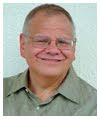The first and primary cause of relapse is that many addiction recovery programs do not use a comprehensive bio-psycho-social-spiritual model in treatment.
Biologically addicted people must understand the addictive brain response to alcohol and other drugs, acute and post acute withdrawal, and the role of stress management, diet, and exercise in recovery.
Psychologically the primary goal is to help people to make a distinction between addictive and irresponsible thinking vs. sober and responsible thinking. The most important element is to teach them to lower stress in the moment and stop to identify and challenge addictive and irresponsible thinking and replace it with sober and responsible thinking. This, of course, leads to reaching people how to identify and stop using drug seeking behavior that increases stress, takes them away from people, places and things that support their recovery, and puts them around people places and things that support using alcohol or other drugs.
Socially it is important to teach people how to transform their social lives and families from one that is alcohol and drug centered and incapable of meeting their needs as sober and responsible people, and rebuild a social network that is capable of meeting their needs.
Spiritually, the quest is to find a personal sense of meaning and purpose in life based upn an understanding the the individual addict is not the entire world nor the center of the universe (this is called addictive grandiosity). Instead, all human beings are born as part of a larger universe, world and social system and has been culturally indoctrinated both verbally and through role modeling a set of beliefs about self, others, the world, and whatever powers greater than self tat govern the "way things are" in the world.
In recovery people need to be challenged to learn how to examine themselves through introspection (the process of reflectively looking within) andextrospection (process of consciously and mndfully looking outside of self) with the purpose of learning and growing in their ability to navigate the complex inner and outer world.
The ultimate goal of recovery is to to develop an age appropriate sense ofmeaning (answering the question: "Why am I here?") purpose (answering the question: "Who am I and what do other people and the world require of me to survive and thrive?), and mission (deciding for themselves what they choose to for improving themselves, helping others, and leaving the world a better place.
I think you can see from this brief description of what Total Recovery looks like, that many treatment programs don't teach clients about addiction, self-assessment, and how to set proper goals for themselves in recovery. Many fail to teach vital thinking, feeling management, social, stress management, and spiritual skills so they can find meaning in purpose in life as a sober, conscious, and rational human being who does need alcohol or other drugs to manage internal experiences and the external challenges of life.
Gorski Books: www.relapse.org
Gorski Home Studies: www.cenaps.com
Gorski’s Office: Tresa@cenaps.com 1-353-279-3068
Sunday, January 2, 2011
Subscribe to:
Post Comments (Atom)


This was incredibly insightful. Thank you for posting. You have a knack for putting into words, that for me, are only scattered thoughts. When named/labeled, they are much easier to learn the behavior/thought pattern. Living Mindfully seems quite important, yet so hard to change.........."In recovery people need to be challenged to learn how to examine themselves through introspection (the process of reflectively looking within) andextrospection (process of consciously and mndfully looking outside of self) with the purpose of learning and growing in their ability to navigate the complex inner and outer world."
ReplyDeleteWhere can I find a teacher/therapist that does this in Philadelphia? Maybe I will be led to one. Thank you. ClaudiaS